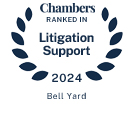The new ‘TripAdvisor’ style website for lawyers – ReviewSolicitors – should come with a series of warnings both for disgruntled customers looking to take pot shots at their lawyers and for solicitors wanting to protect their reputation by stamping out any criticism considered harsh or unfair.
ReviewSolicitors allows people to rate their solicitor whether or not that law firm is registered with the site but, unlike the infamous ‘Solicitors from Hell’ website which was closed down following legal action from the Law Society, the new platform is intended to be a productive resource for lawyers and the public alike.
This is unlikely to stop angry clients having a rant and some lawyers rushing to threaten, or even launch, defamation proceedings – after all speed is often of the essence especially when dealing with potential online libels.
Seriously damaging and defamatory allegations can and are made on websites. This was illustrated in the recent case of Brett Wilson LLP v Persons Unknown where Judge Warby ruled that words posted on a new website calling itself ‘Solicitors from Hell UK’ and suggesting that the claimant firm was corrupt, incompetent and oppressive were ‘clearly defamatory.’
In that case there was no attempt by the site nor its unknown operators to defend the claim but there may well be instances where allegations of incompetence or negligence, for example, may be warranted and can be successfully defended.
“Whether these allegations would give rise to an actionable claim in defamation by the lawyer concerned will largely depend on whether the allegations are true, could be defended as honest opinion or could be protected under qualified privilege,” said Amber Melville-Brown, Media and Reputation Management partner at Withers LLP.
In other words lawyers should think twice before starting a legal action that may end up damaging rather than protecting their reputation. Words do hurt and can cause significant damage but libel litigation may not be the best way to remedy a damaged reputation, said Ms. Melville-Brown.
“Careful consideration needs to be given to whether the downside of allowing the allegation to remain online, is worse than the time, energy, costs and publicity of taking the opponent on,”she said.
Indeed, a negative post might be the perfect opportunity for a law firm to beef-up or launch a ‘best practice’ for dealing with customer complaints. There are also a number of communications tools to rebut unfair and inaccurate reporting, without resorting to legal remedies, though with ongoing client confidentiality restrictions, being too open about the facts in mitigation, may be tricky.
Many solicitors already operate under the Law Society’s quality mark for excellence, Lexcel, which involves managing an effective complaints procedure but the possibility of being attacked online should serve as a timely reminder to any lawyer that clients and their feedback matter.
For their part, angry or disappointed clients should think twice before venting online. Being a defendant in a libel action in the UK is notoriously difficult because the onus of proof lies on the defence. It is the opposite in the US where the burden is on the plaintiff to show that the allegations are untrue and where, not surprisingly, there are already a number of well-established lawyer-rating sites.
It is also not always obvious to a client, and potential defendant, the precise extent or details of the work done by a solicitor on his/her behalf. For example, the solicitor is likely to have a record on file of checks made and work done which could catch out an unwary client. And, perhaps most importantly, along with the complex law and difficulties with factual evidence, potential defendants are likely to be up against well-heeled and insured lawyers.
2 October 2015












